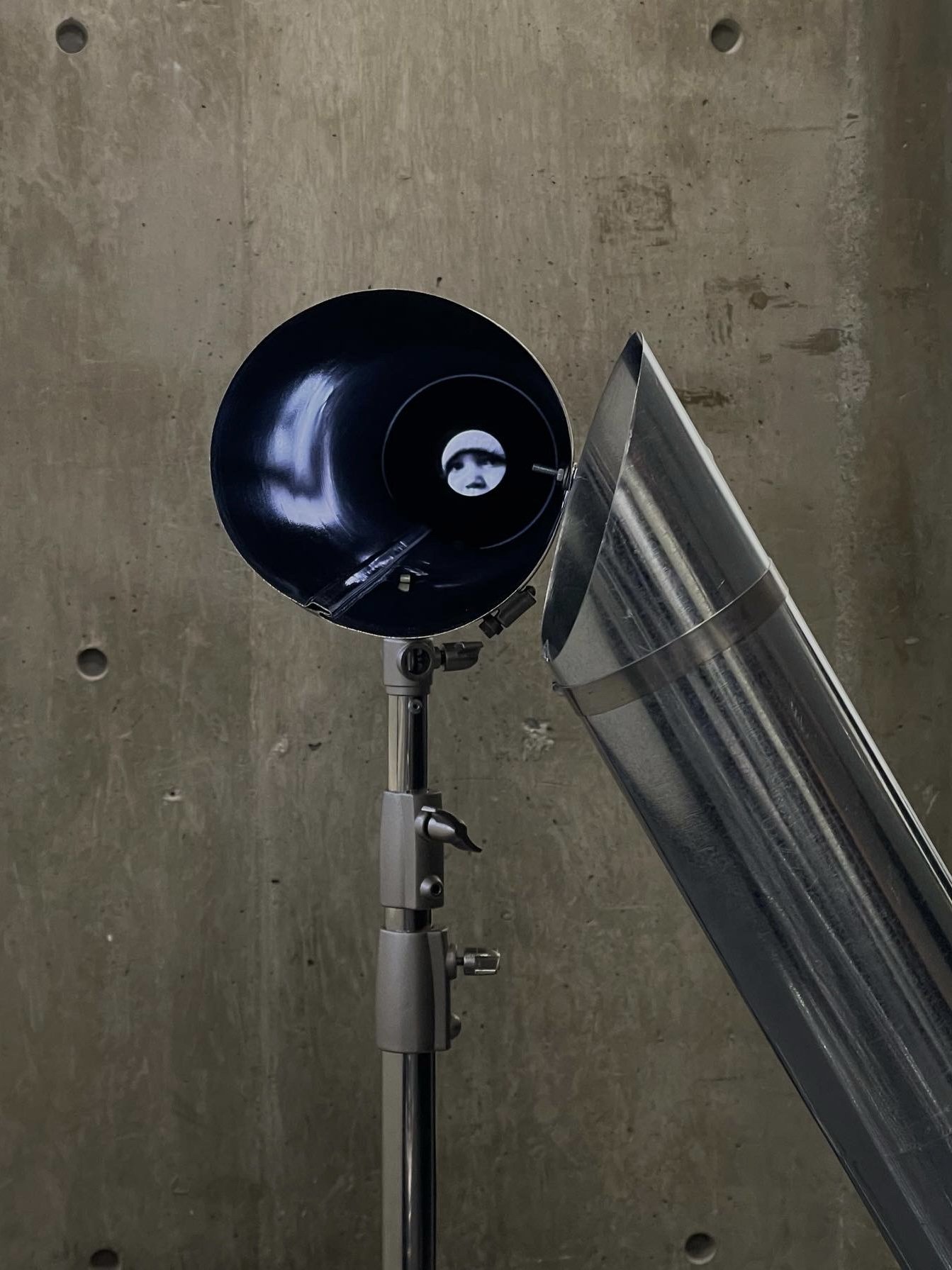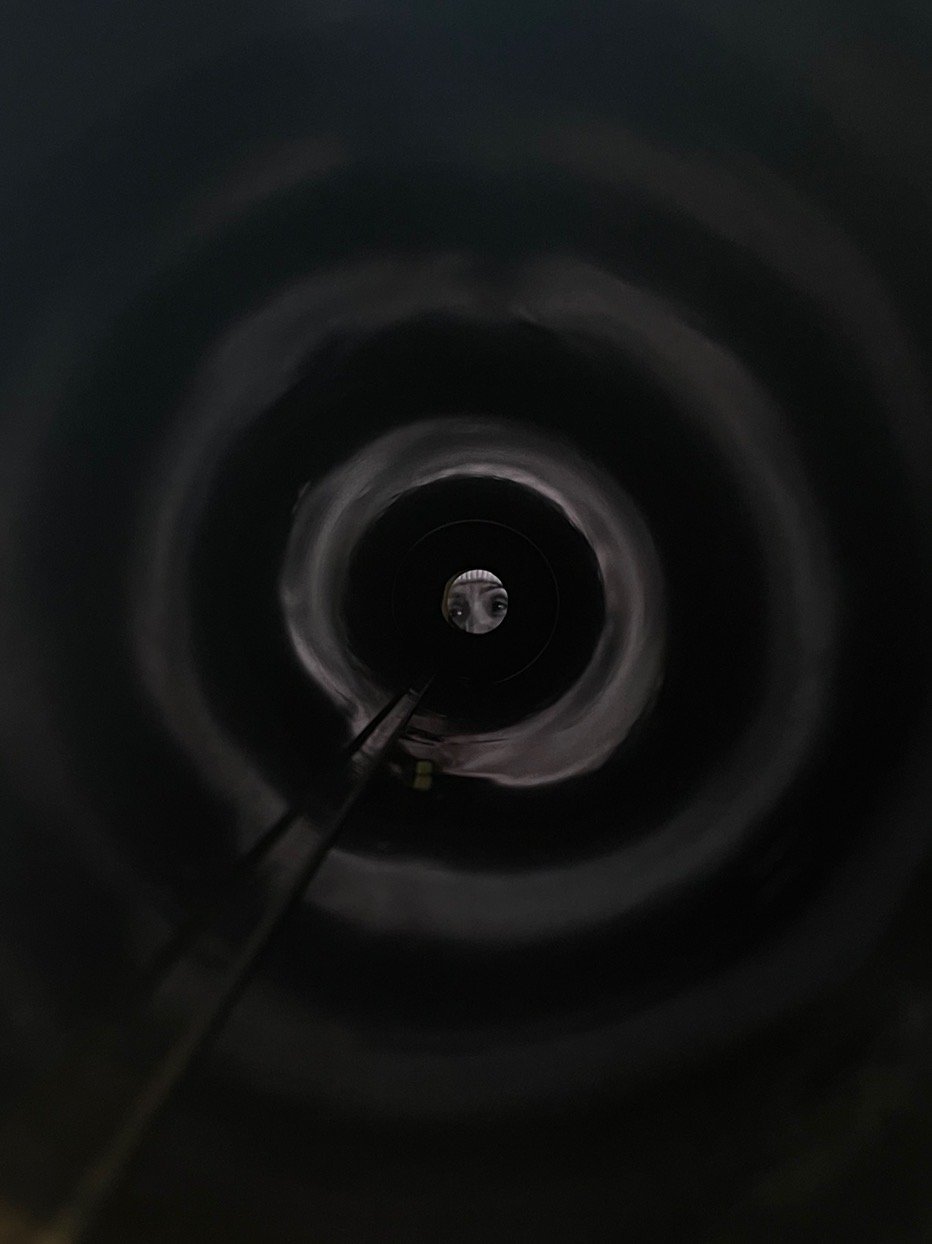2022.05 Interrogative Design: Cultural Prosthetics
Interrogative Design: Cultural Prosthetics
Kirkland Gallery in collaboration with co-curator María Garcia San Martín and Krzysztof Wodiczko.
In the Interrogative Design: Cultural Prosthetics course, students were encouraged to critically interrogate and proactively respond to the existential, communicative and survival needs of the estranged, marginalized and excluded persons or social groups.
Through design interventions, students address the unacceptability of such needs—and of the conditions of life that produce them—in a civilized world. By exploring alternate modes of representation, each work confronts a different social issue that defines our society.
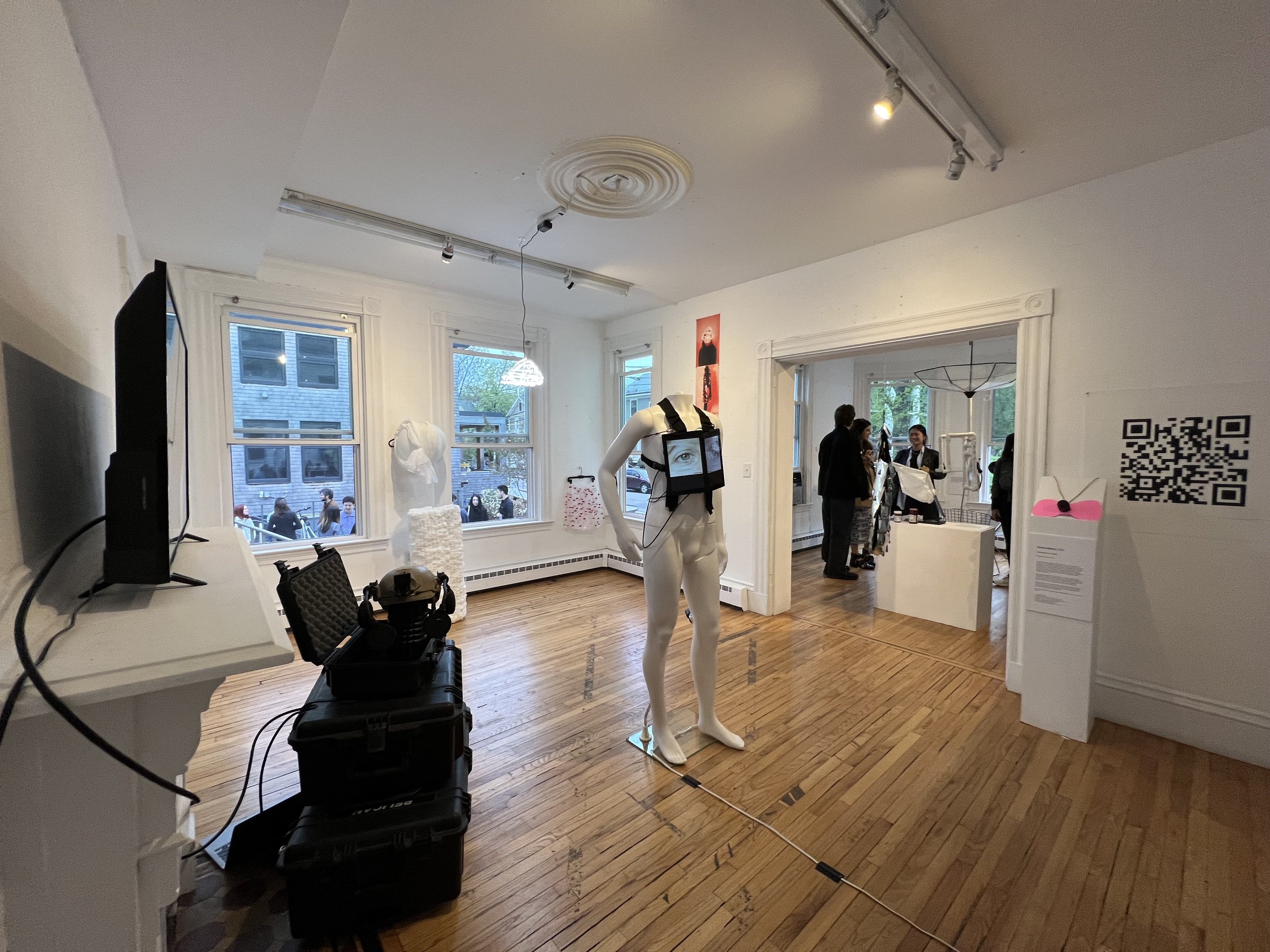
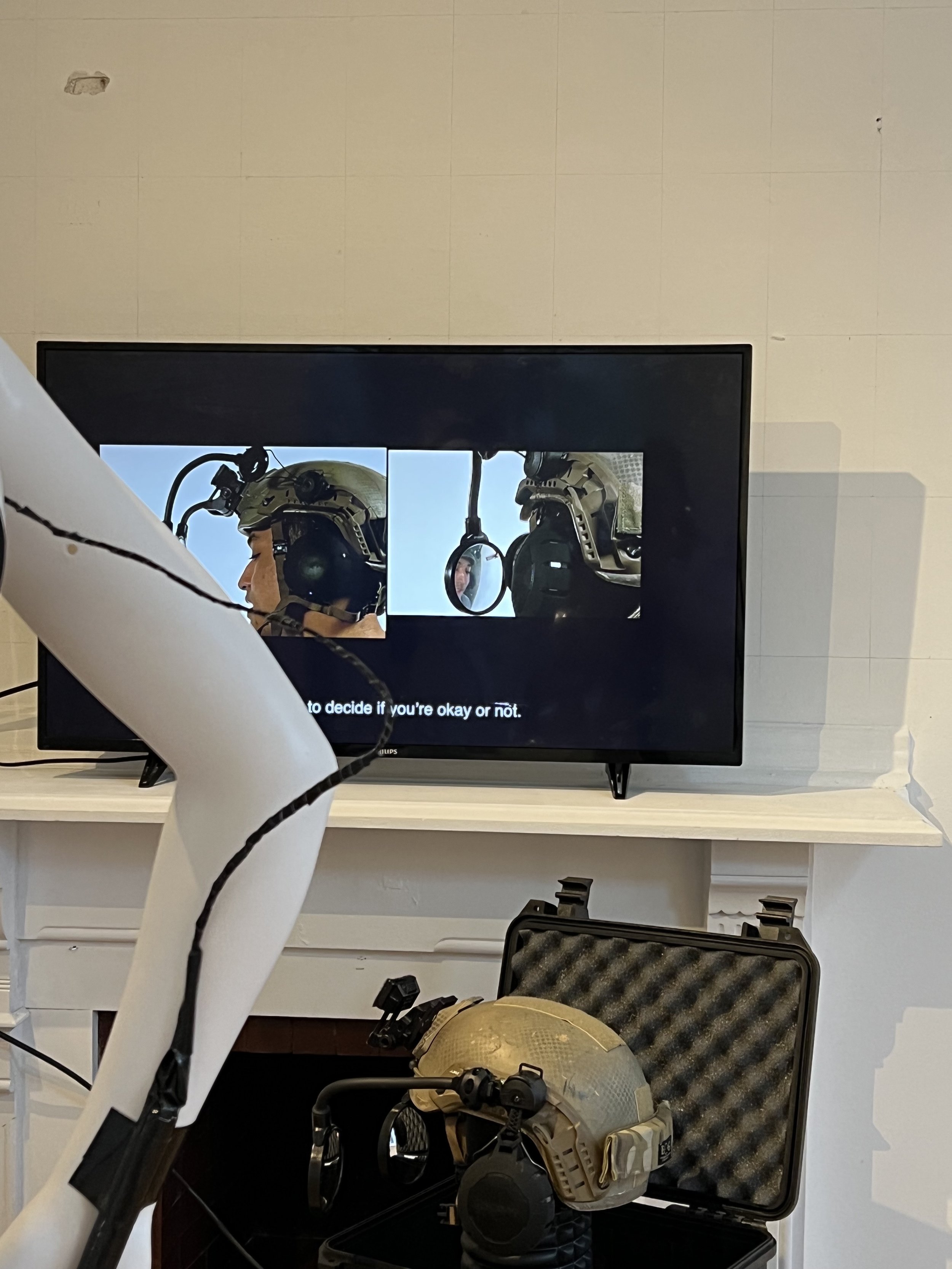
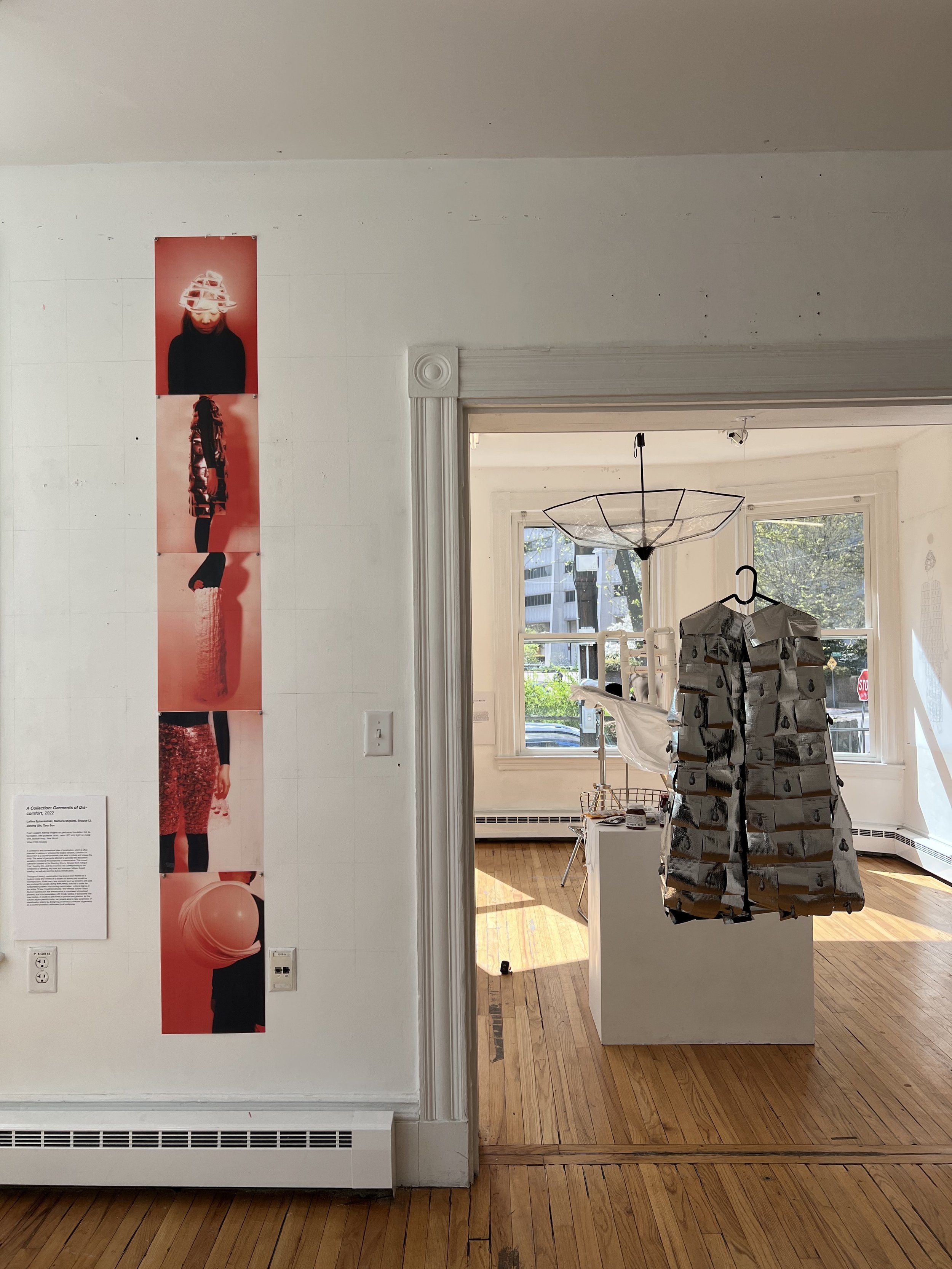
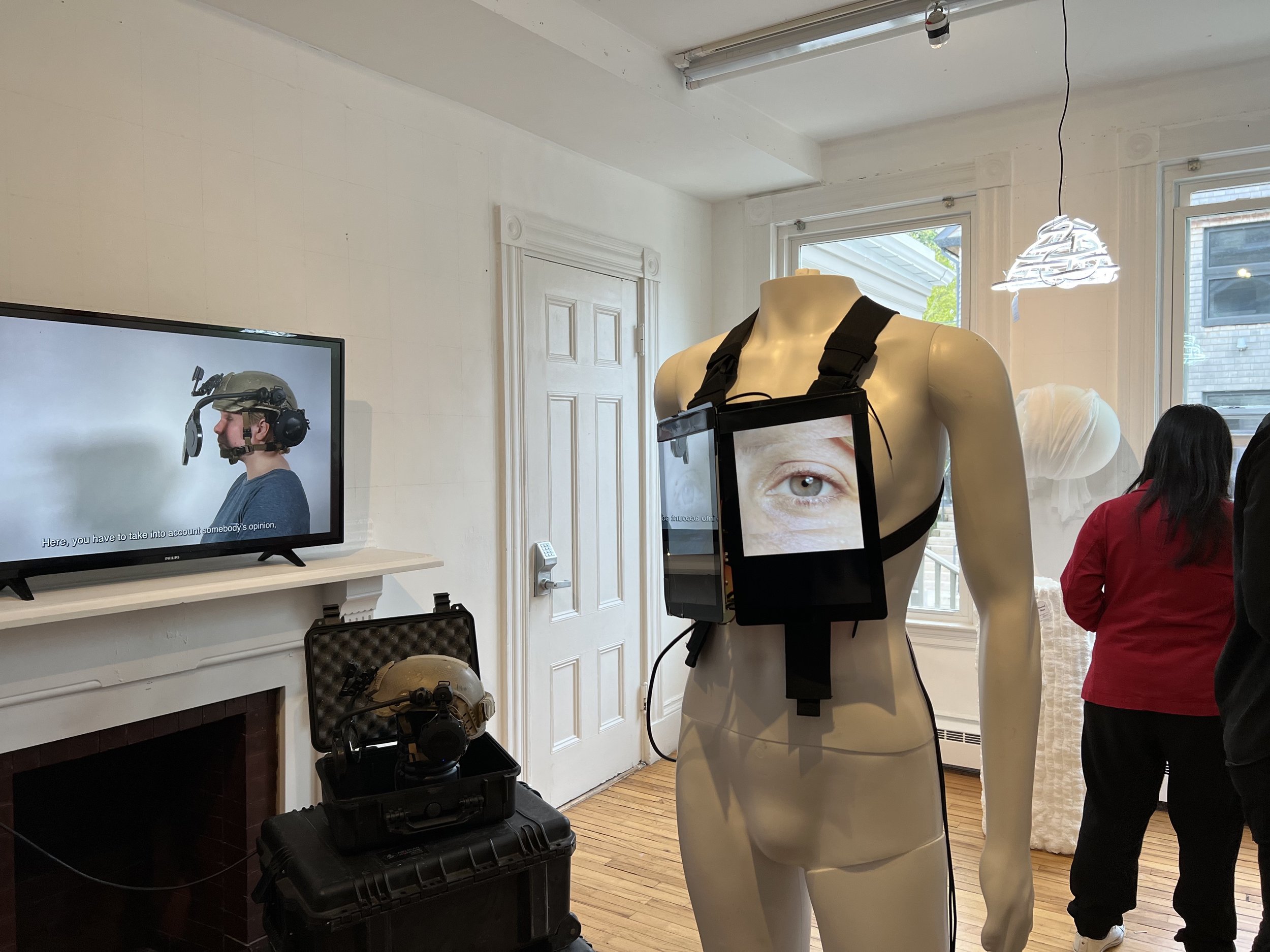
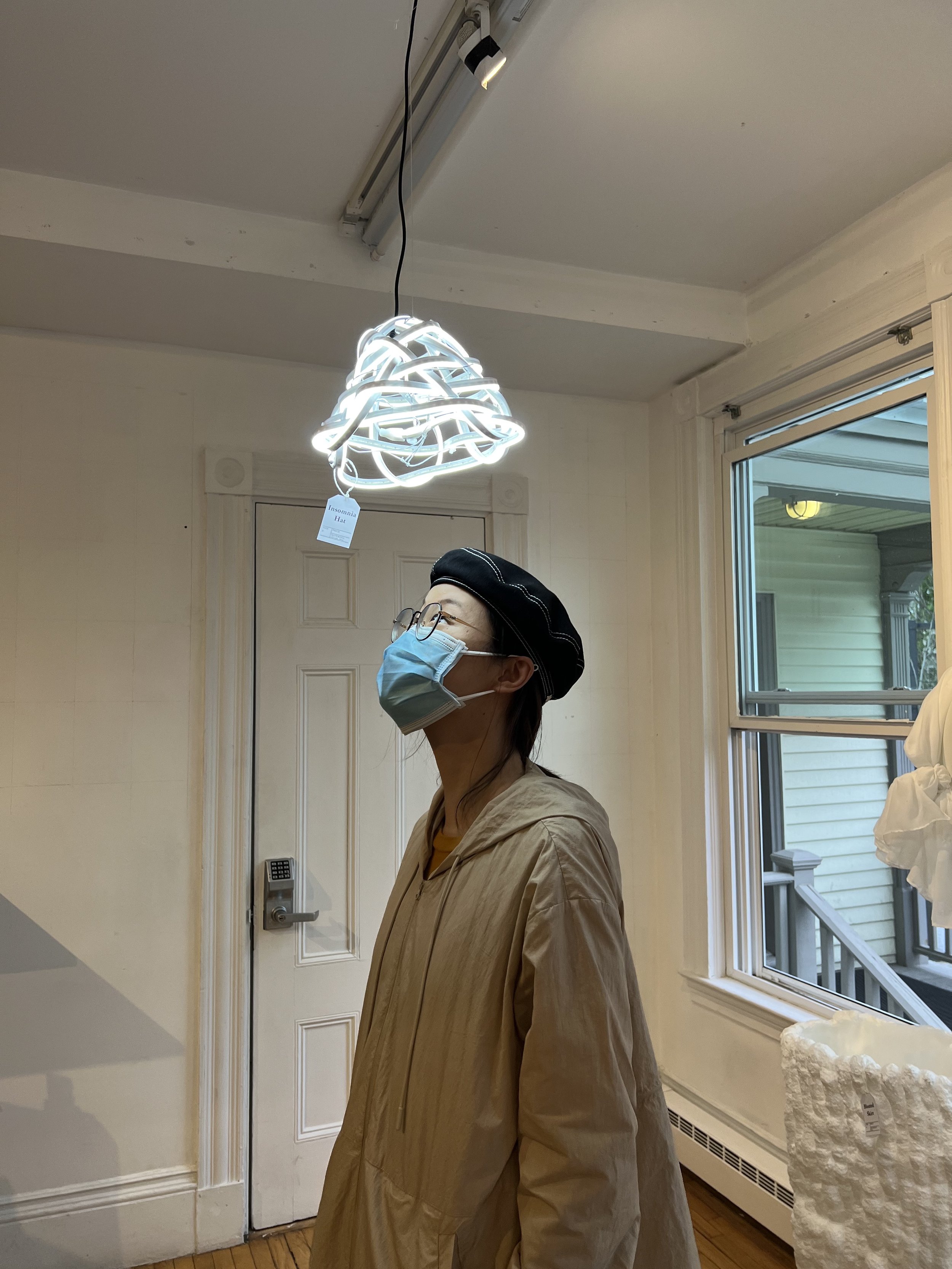
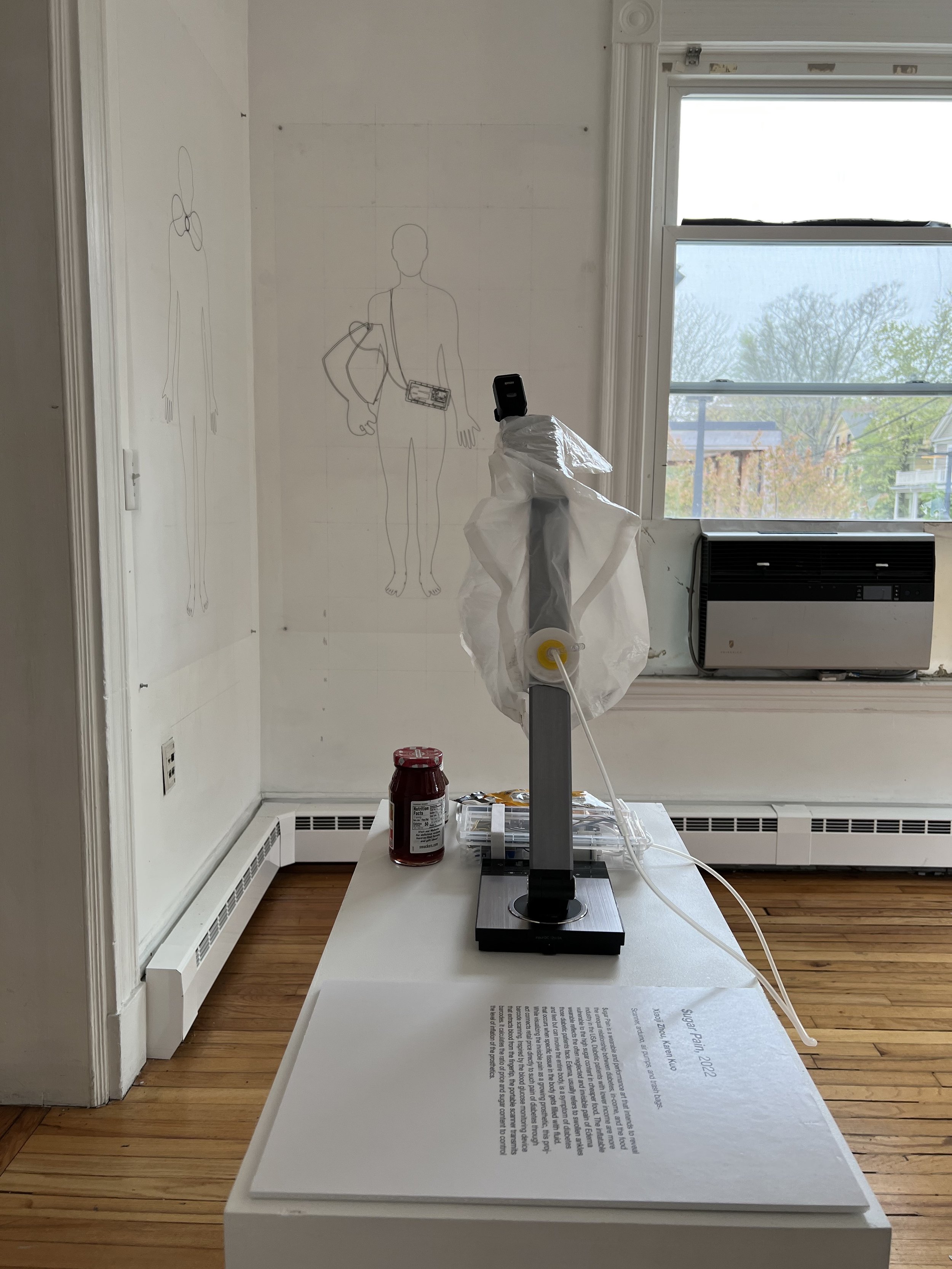
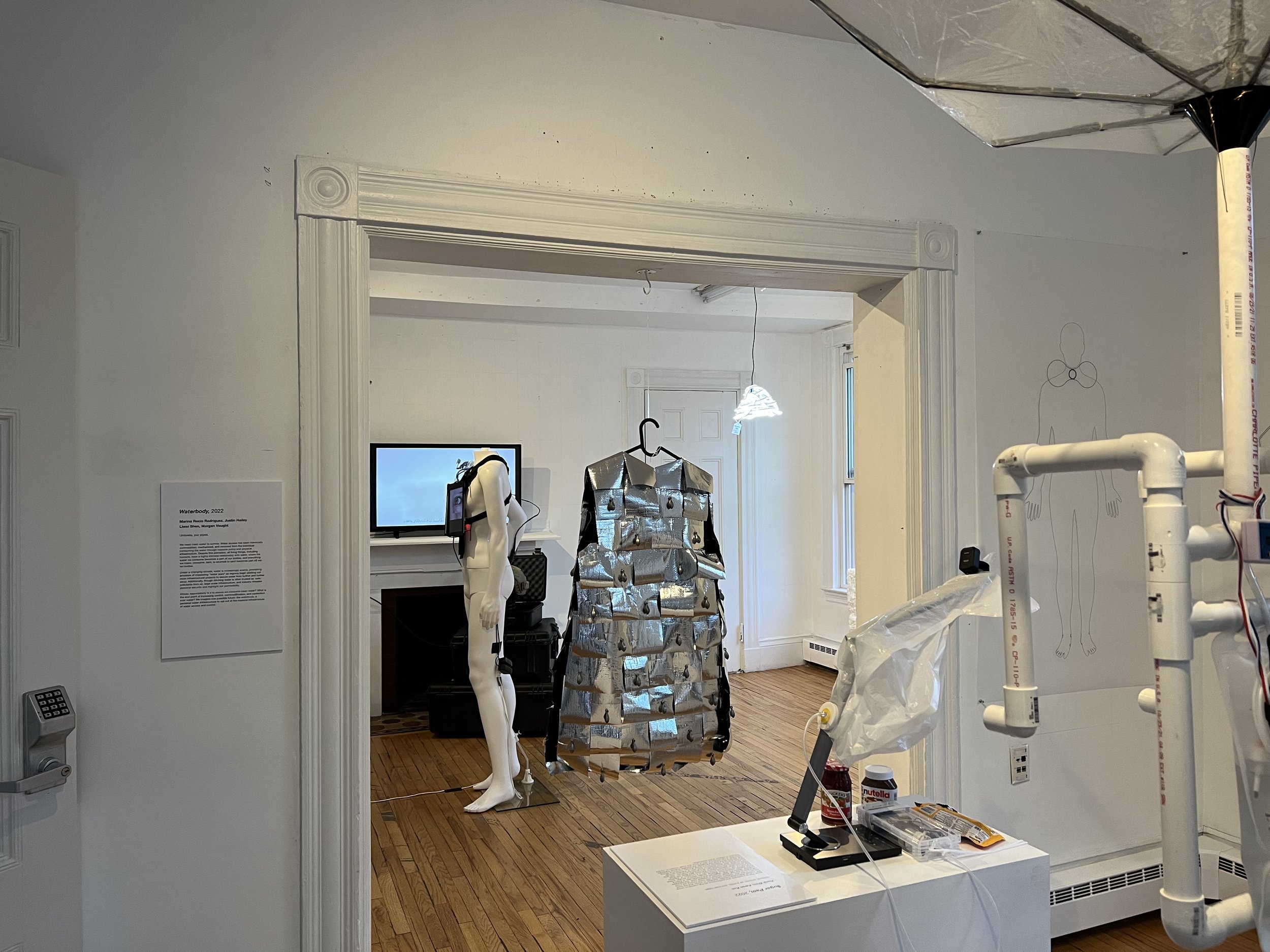
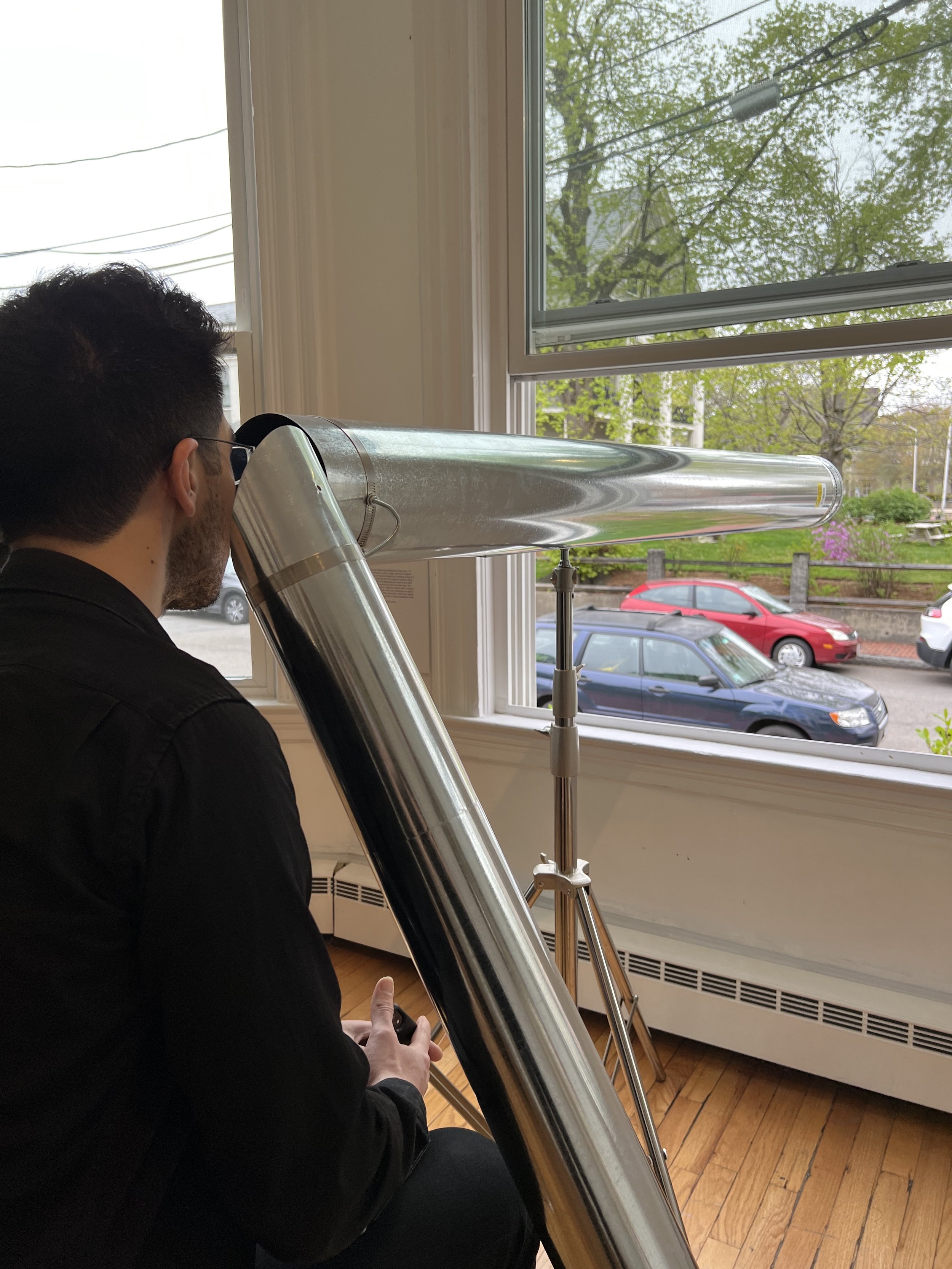
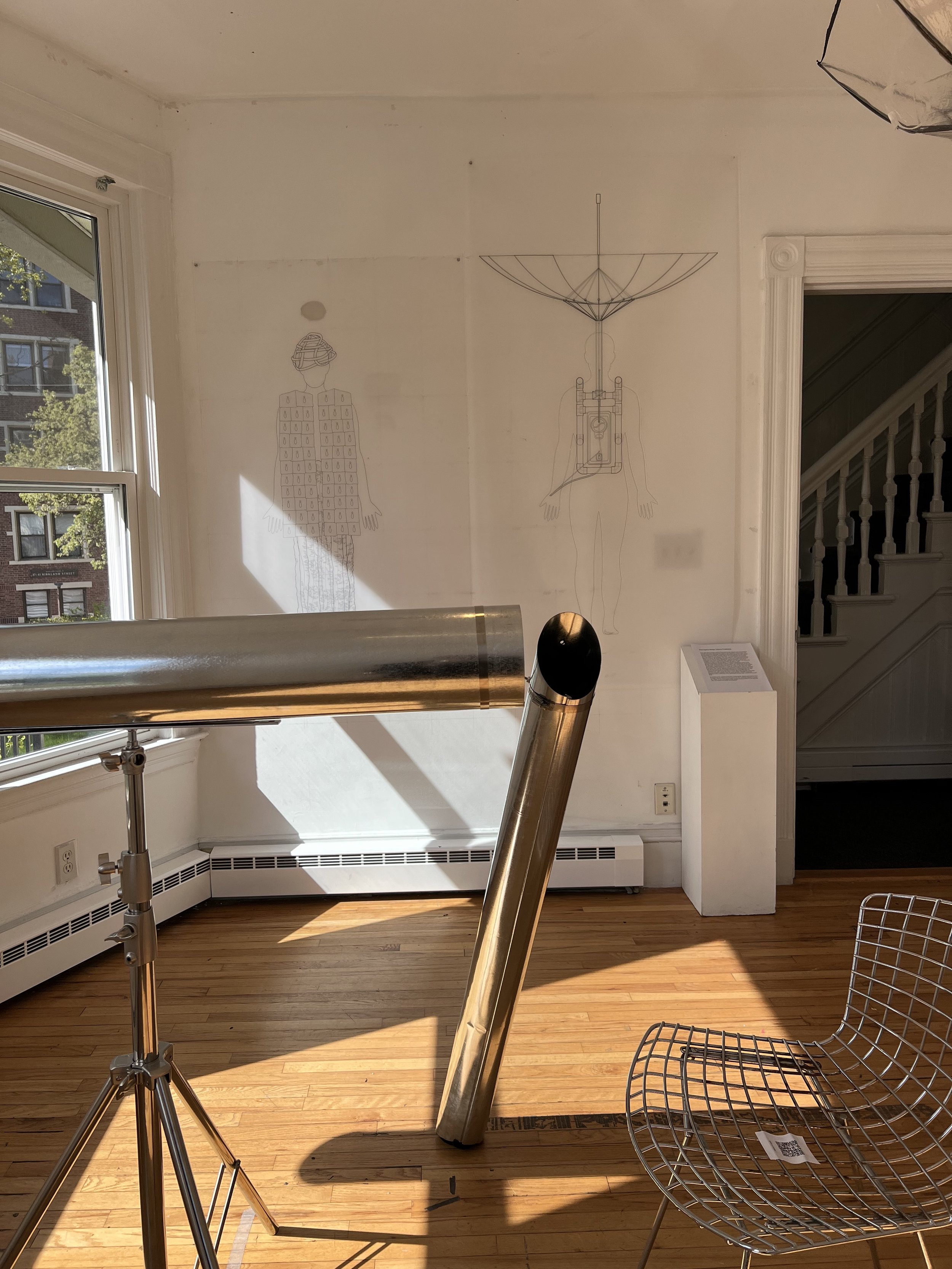
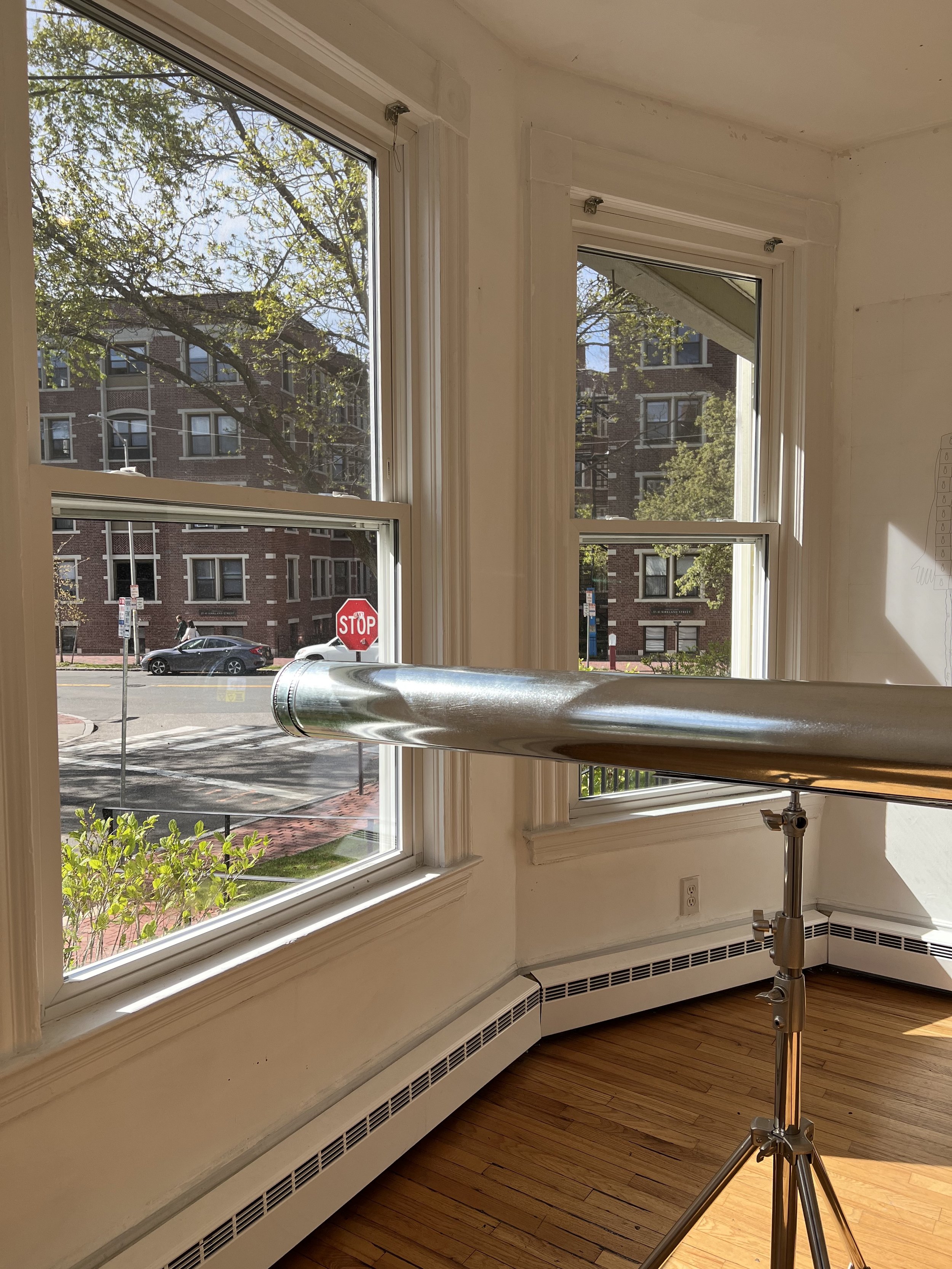
The Scene Maker provides a new way to experience the social construction of cultural norms, allowing the audience to perform, conform, or misbehave. Gaze Armor complicates and responds to the male gaze and creates the conditions to regain a sense of empowerment and agency. Futile Instrument repurposes outdated military surveillance technology in order to call attention to the intense feelings of sadness, neglect, and helplessness during war. The Garments of Discomfort line draws attention to the cultural stigmas surrounding menstruation, utilizing sensations of unease and humor to raise awareness about period shaming. Post-helmet acts as a cathartic and therapeutic device for veterans to process a wide range of emotions and experiences as they transition from active duty service to civilian life. Waterbody challenges the impending problem of water scarcity and interrogates the emergence of increasing commodification and contention over water access and control. Finally, $ugar Pain responds to the social and socio-economic inequities that may cause and lead to diabetes, urging the audience to take a closer look at the relationship between sugar content and low cost foods.
By focusing on the question as the point of interrogation, students accrued new ways to engage with the most prominent issues of our time. In Rosalyn Deutsche’s words, the “utopia” of such interrogative design projects should be based on “the hope that their very function will render them obsolete”.
Including works from Xiaoji Zhou, Marina Recio Rodriguez, Tara Sun, Yiyao Tang, Morgan Vought, Cherry Wu, Jade Wu, Li Zhou, Liwei Shen, Danny Clarke, Trent Bullion, Lafina Eptaminitaki, Justin Hailey, Karen Kuo, Shuyue Li, Yunsong Liu, Anna Mansueti, Barbara Miglietti
TA: Maria Gracia San Martin Riutort
Krzysztof Wodiczko is a former Professor in Residence of Art, Design and the Public Domain, Emeritus at the Graduate School of Design at Harvard University.
He is renowned for his large-scale slide and video projections on architectural facades and monuments. He has realized more than 90 of such public projections and installations in Australia, Austria, Belgium, Canada, England, Turkey, Germany, Holland, Northern Ireland, Israel, Italy, Japan, Mexico, Poland, Spain, Switzerland, and the United States.
Since the late 1980s, his projections have involved the active participation of marginalized and estranged city residents. Simultaneously, and also internationally (England, Finland, France, Poland, Holland, Japan, Northern Ireland, Spain, Sweden and the US) he has been designing and implementing a series of nomadic instruments and vehicles with homeless, immigrant, and war veteran operators for their survival and communication.


